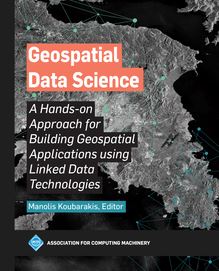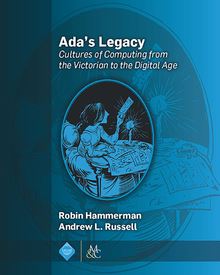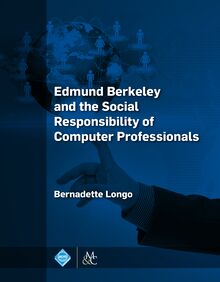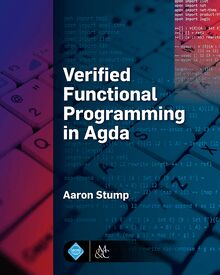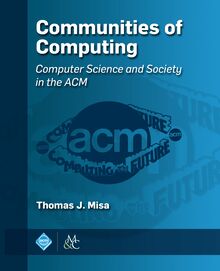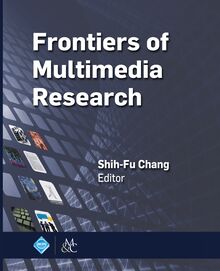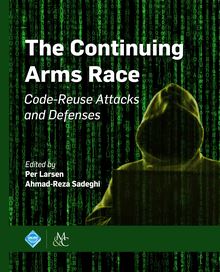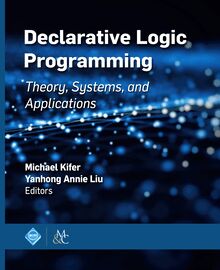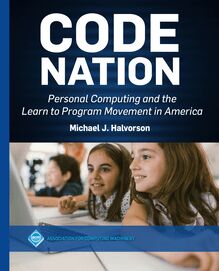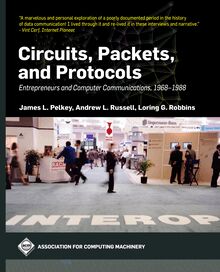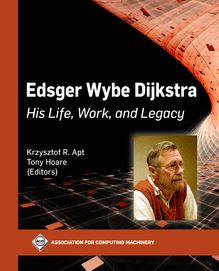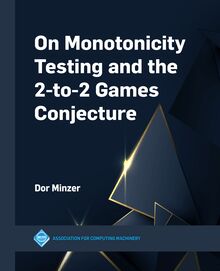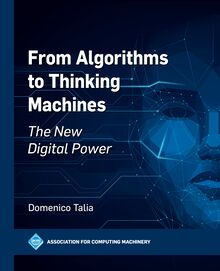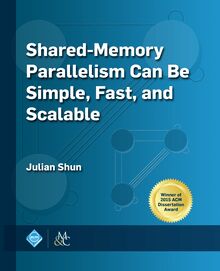-
 Univers
Univers
-
 Ebooks
Ebooks
-
 Livres audio
Livres audio
-
 Presse
Presse
-
 Podcasts
Podcasts
-
 BD
BD
-
 Documents
Documents
-
- Cours
- Révisions
- Ressources pédagogiques
- Sciences de l’éducation
- Manuels scolaires
- Langues
- Travaux de classe
- Annales de BEP
- Etudes supérieures
- Maternelle et primaire
- Fiches de lecture
- Orientation scolaire
- Méthodologie
- Corrigés de devoir
- Annales d’examens et concours
- Annales du bac
- Annales du brevet
- Rapports de stage
La lecture à portée de main
Vous pourrez modifier la taille du texte de cet ouvrage
Découvre YouScribe en t'inscrivant gratuitement
Je m'inscrisThe Essentials of Modern Software Engineering , livre ebook
Découvre YouScribe en t'inscrivant gratuitement
Je m'inscrisEn savoir plus
Vous pourrez modifier la taille du texte de cet ouvrage
En savoir plus

Description
The first course in software engineering is the most critical. Education must start from an understanding of the heart of software development, from familiar ground that is common to all software development endeavors.
This book is an in-depth introduction to software engineering that uses a systematic, universal kernel to teach the essential elements of all software engineering methods.
This kernel, Essence, is a vocabulary for defining methods and practices. Essence was envisioned and originally created by Ivar Jacobson and his colleagues, developed by Software Engineering Method and Theory (SEMAT) and approved by The Object Management Group (OMG) as a standard in 2014. Essence is a practice-independent framework for thinking and reasoning about the practices we have and the practices we need. Essence establishes a shared and standard understanding of what is at the heart of software development. Essence is agnostic to any particular method, lifecycle independent, programming language independent, concise, scalable, extensible, and formally specified. Essence frees the practices from their method prisons.
The first part of the book describes Essence, the essential elements to work with, the essential things to do and the essential competencies you need when developing software. The other three parts describe more and more advanced use cases of Essence. Using real but manageable examples, it covers the fundamentals of Essence and the innovative use of serious games to support software engineering. It also explains how current practices such as user stories, use cases, Scrum, and micro-services can be described using Essence, and illustrates how their activities can be represented using the Essence notions of cards and checklists. The fourth part of the book offers a vision how Essence can be scaled to support large, complex systems engineering.
Essence is supported by an ecosystem developed and maintained by a community of experienced people worldwide. From this ecosystem, professors and students can select what they need and create their own way of working, thus learning how to create ONE way of working that matches the particular situation and needs.
- Foreword by Ian Sommerville
- Foreword by Grady Brooch
- Preface
- THE ESSENCE OF SOFTWARE ENGINEERING
- From Programming to Software Engineering
- Software Engineering Methods and Practices
- Essence in a Nutshell
- Identifying the Key Elements of Software Engineering
- The Language of Software Engineering
- The Kernel of Software Engineering
- Reflection on Theory
- Applying Essence in the Small—Playing Serious Games
- DEVELOPING SOFTWARE WITH ESSENCE
- Kick-Starting Development Using Essence
- Developing with Essence
- The Development Journey
- Reflection on the Kernel
- SMALL-SCALE DEVELOPMENT WITH PRACTICES
- Kick-Starting Development with Practices
- Running with Scrum
- Running with User Story Lite
- Running with Use Case Lite
- Running with Microservices
- Putting the Practices Together: Composition
- LARGE-SCALE COMPLEX DEVELOPMENT
- What It Means to Scale
- Essentializing Practices
- Scaling Up to Large and Complex Development
- Reaching Out to Different Kinds of Development
- Reaching Out to the Future
- A Brief History of Software and Software Engineering
- References
- Index
- Author Biographies
Sujets
Informations
| Publié par | Association for Computing Machinery and Morgan & Claypool Publishers |
| Date de parution | 19 juillet 2019 |
| Nombre de lectures | 1 |
| EAN13 | 9781947487260 |
| Langue | English |
| Poids de l'ouvrage | 1 Mo |
Informations légales : prix de location à la page 0,2798€. Cette information est donnée uniquement à titre indicatif conformément à la législation en vigueur.
Extrait
The Essentials of Modern Software Engineering
ACM Books
Editor in Chief
M. Tamer zsu, University of Waterloo
ACM Books is a new series of high-quality books for the computer science community, published by ACM in collaboration with Morgan Claypool Publishers. ACM Books publications are widely distributed in both print and digital formats through booksellers and to libraries (and library consortia) and individual ACM members via the ACM Digital Library platform.
The Essentials of Modern Software Engineering: Free the Practices from the Method Prisons!
Ivar Jacobson, Ivar Jacobson International
Harold Bud Lawson, Lawson Konsult AB (deceased)
Pan-Wei Ng, DBS Singapore
Paul E. McMahon, PEM Systems
Michael Goedicke, Universit t Duisburg-Essen
2019
Concurrency: The Works of Leslie Lamport
Dahlia Malkhi, VMware Research and Calibra
2019
Data Cleaning
Ihab F. Ilyas, University of Waterloo
Xu Chu, Georgia Institute of Technology
2019
Conversational UX Design: A Practitioner s Guide to the Natural Conversation Framework
Robert J. Moore, IBM Research-Almaden
Raphael Arar, IBM Research-Almaden
2019
Heterogeneous Computing: Hardware and Software Perspectives
Mohamed Zahran, New York University
2019
Hardness of Approximation Between P and NP
Aviad Rubinstein, Stanford University
2019
The Handbook of Multimodal-Multisensor Interfaces, Volume 3: Language Processing, Software, Commercialization, and Emerging Directions
Editors: Sharon Oviatt, Monash University
Bj rn Schuller, University of Augsburg and Imperial College London
Philip R. Cohen, Monash University
Daniel Sonntag, German Research Center for Artificial Intelligence (DFKI)
Gerasimos Potamianos, University of Thessaly
Antonio Kr ger, Saarland University and German Research Center for Artificial Intelligence (DFKI)
2019
Making Databases Work: The Pragmatic Wisdom of Michael Stonebraker
Editor: Michael L. Brodie
2018
The Handbook of Multimodal-Multisensor Interfaces, Volume 2: Signal Processing, Architectures, and Detection of Emotion and Cognition
Editors: Sharon Oviatt, Monash University
Bj rn Schuller, University of Augsburg and Imperial College London
Philip R. Cohen, Monash University
Daniel Sonntag, German Research Center for Artificial Intelligence (DFKI) Gerasimos Potamianos, University of Thessaly
Antonio Kr ger, Saarland University and German Research Center for Artificial Intelligence (DFKI)
2018
Declarative Logic Programming: Theory, Systems, and Applications
Editors: Michael Kifer, Stony Brook University
Yanhong Annie Liu, Stony Brook University
2018
The Sparse Fourier Transform: Theory and Practice
Haitham Hassanieh, University of Illinois at Urbana-Champaign
2018
The Continuing Arms Race: Code-Reuse Attacks and Defenses
Editors: Per Larsen, Immunant, Inc .
Ahmad-Reza Sadeghi, Technische Universit t Darmstadt
2018
Frontiers of Multimedia Research
Editor: Shih-Fu Chang, Columbia University
2018
Shared-Memory Parallelism Can Be Simple, Fast, and Scalable
Julian Shun, University of California, Berkeley
2017
Computational Prediction of Protein Complexes from Protein Interaction Networks
Sriganesh Srihari, The University of Queensland Institute for Molecular Bioscience
Chern Han Yong, Duke-National University of Singapore Medical School
Limsoon Wong, National University of Singapore
2017
The Handbook of Multimodal-Multisensor Interfaces, Volume 1: Foundations, User Modeling, and Common Modality Combinations
Editors: Sharon Oviatt, Incaa Designs
Bj rn Schuller, University of Passau and Imperial College London
Philip R. Cohen, Voicebox Technologies
Daniel Sonntag, German Research Center for Artificial Intelligence (DFKI)
Gerasimos Potamianos, University of Thessaly
Antonio Kr ger, Saarland University and German Research Center for Artificial Intelligence (DFKI)
2017
Communities of Computing: Computer Science and Society in the ACM
Thomas J. Misa, Editor, University of Minnesota
2017
Text Data Management and Analysis: A Practical Introduction to Information Retrieval and Text Mining
ChengXiang Zhai, University of Illinois at Urbana-Champaign
Sean Massung, University of Illinois at Urbana-Champaign
2016
An Architecture for Fast and General Data Processing on Large Clusters
Matei Zaharia, Stanford University
2016
Reactive Internet Programming: State Chart XML in Action
Franck Barbier, University of Pau, France
2016
Verified Functional Programming in Agda
Aaron Stump, The University of Iowa
2016
The VR Book: Human-Centered Design for Virtual Reality
Jason Jerald, NextGen Interactions
2016
Ada s Legacy: Cultures of Computing from the Victorian to the Digital Age
Robin Hammerman, Stevens Institute of Technology
Andrew L. Russell, Stevens Institute of Technology
2016
Edmund Berkeley and the Social Responsibility of Computer Professionals
Bernadette Longo, New Jersey Institute of Technology
2015
Candidate Multilinear Maps
Sanjam Garg, University of California, Berkeley
2015
Smarter Than Their Machines: Oral Histories of Pioneers in Interactive Computing
John Cullinane, Northeastern University; Mossavar-Rahmani Center for Business and Government, John F. Kennedy School of Government, Harvard University
2015
A Framework for Scientific Discovery through Video Games
Seth Cooper, University of Washington
2014
Trust Extension as a Mechanism for Secure Code Execution on Commodity Computers
Bryan Jeffrey Parno, Microsoft Research
2014
Embracing Interference in Wireless Systems
Shyamnath Gollakota, University of Washington
2014
The Essentials of Modern Software Engineering
Free the Practices from the Method Prisons!
Ivar Jacobson
Ivar Jacobson International
Harold Bud Lawson
Lawson Konsult AB (deceased)
Pan-Wei Ng
DBS Singapore
Paul E. McMahon
PEM Systems
Michael Goedicke
Universit t Duisburg-Essen
ACM Books #25
Copyright 2019 by the Association for Computing Machinery and Morgan Claypool Publishers
All rights reserved. No part of this publication may be reproduced, stored in a retrieval system, or transmitted in any form or by any means-electronic, mechanical, photocopy, recording, or any other except for brief quotations in printed reviews-without the prior permission of the publisher.
Designations used by companies to distinguish their products are often claimed as trademarks or registered trademarks. In all instances in which Morgan Claypool is aware of a claim, the product names appear in initial capital or all capital letters. Readers, however, should contact the appropriate companies for more complete information regarding trademarks and registration.
The Essentials of Modern Software Engineering: Free the Practices from the Method Prisons!
Ivar Jacobson, Harold Bud Lawson, Pan-Wei Ng, Paul E. McMahon, Michael Goedicke
books.acm.org
www.morganclaypoolpublishers.com
ISBN: 978-1-94748-727-7 hardcover
ISBN: 978-1-94748-724-6 paperback
ISBN: 978-1-94748-725-3 eBook
ISBN: 978-1-94748-726-0 ePub
Series ISSN: 2374-6769 print 2374-6777 electronic
DOIs:
10.1145/3277669 Book
10.1145/3277669.3277685 Part III
10.1145/3277669.3277670 Preface
10.1145/3277669.3277671 Part I
10.1145/3277669.3277672 Chapter 1
10.1145/3277669.3277673 Chapter 2
10.1145/3277669.3277674 Chapter 3
10.1145/3277669.3277675 Chapter 4
10.1145/3277669.3277676 Chapter 5
10.1145/3277669.3277677 Chapter 6
10.1145/3277669.3277678 Chapter 7
10.1145/3277669.3277679 Chapter 8
10.1145/3277669.3277680 Part II
10.1145/3277669.3277681 Chapter 9
10.1145/3277669.3277682 Chapter 10
10.1145/3277669.3277683 Chapter 11
10.1145/3277669.3277684 Chapter 12
10.1145/3277669.3277686 Chapter 13
10.1145/3277669.3277687 Chapter 14
10.1145/3277669.3277688 Chapter 15
10.1145/3277669.3277689 Chapter 16
10.1145/3277669.3277690 Chapter 17
10.1145/3277669.3277691 Chapter 18
10.1145/3277669.3277692 Part IV
10.1145/3277669.3277693 Chapter 19
10.1145/3277669.3277694 Chapter 20
10.1145/3277669.3277695 Chapter 21
10.1145/3277669.3277696 Chapter 22
10.1145/3277669.3277697 Chapter 23
10.1145/3277669.3277698 Appendix A
10.1145/3277669.3277699 References / Index / Bios
A publication in the ACM Books series, #25
Editor in Chief: M. Tamer zsu, University of Waterloo
Area Editor: Bashar Nuseibeh, The Open University
This book was typeset in Arnhem Pro 10/14 and Flama using ZzT E X.
First Edition
10 9 8 7 6 5 4 3 2 1
In every block of marble I see a statue as plain as though it stood before me, shaped and perfect in attitude and action. I have only to hew away the rough walls that imprison the lovely apparition to reveal it to the other eyes as mine see it . -Michelangelo
Standing on the shoulders of a giant
We are liberating the essence from the burden of the whole . -Ivar Jacobson
Contents
Foreword by Ian Sommerville
Foreword by Grady Booch
Preface
PART I
THE ESSENCE OF SOFTWARE ENGINEERING
Chapter 1
From Programming to Software Engineering
1.1 Beginning with Programming
1.2 Programming Is Not Software Engineering
1.3 From Internship to Industry
1.4 Journey into the Software Engineering Profession
What Should You Now Be Able to Accomplish?
Chapter 2
Software Engineering Methods and Practices
2.1 Software Engineering Challenges
2.2 The Rise of Software Engineering Methods and Practices
2.3 The SEMAT Initiative
2.4 Essence: The OMG Standard
What Should You Now Be Able to Accomplish?
Chapter 3
Essence in a Nutshell
3.1 The Ideas
3.2 Methods Are Compositions of Practices
3.3 There Is a Common Ground
3.4 Focus on the Essentials
3.5 Providing an Engaging User Experience
What Should You Now Be Able to Accomplish?
Chapter 4
Identifying the Key Elements of Software Engineering
4.1 Getting to the Basics
4.2 Software Engineering Is about Delivering Value to Customers
4.3 Software Engineering Delivers Value through a Solution
4.4 Software Engineering Is Also about Endeavors
What Should You Now Be Able to Accompli
-
 Univers
Univers
-
 Ebooks
Ebooks
-
 Livres audio
Livres audio
-
 Presse
Presse
-
 Podcasts
Podcasts
-
 BD
BD
-
 Documents
Documents
-
Jeunesse
-
Littérature
-
Ressources professionnelles
-
Santé et bien-être
-
Savoirs
-
Education
-
Loisirs et hobbies
-
Art, musique et cinéma
-
Actualité et débat de société
-
Jeunesse
-
Littérature
-
Ressources professionnelles
-
Santé et bien-être
-
Savoirs
-
Education
-
Loisirs et hobbies
-
Art, musique et cinéma
-
Actualité et débat de société
-
Actualités
-
Lifestyle
-
Presse jeunesse
-
Presse professionnelle
-
Pratique
-
Presse sportive
-
Presse internationale
-
Culture & Médias
-
Action et Aventures
-
Science-fiction et Fantasy
-
Société
-
Jeunesse
-
Littérature
-
Ressources professionnelles
-
Santé et bien-être
-
Savoirs
-
Education
-
Loisirs et hobbies
-
Art, musique et cinéma
-
Actualité et débat de société
- Cours
- Révisions
- Ressources pédagogiques
- Sciences de l’éducation
- Manuels scolaires
- Langues
- Travaux de classe
- Annales de BEP
- Etudes supérieures
- Maternelle et primaire
- Fiches de lecture
- Orientation scolaire
- Méthodologie
- Corrigés de devoir
- Annales d’examens et concours
- Annales du bac
- Annales du brevet
- Rapports de stage
